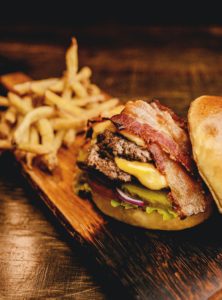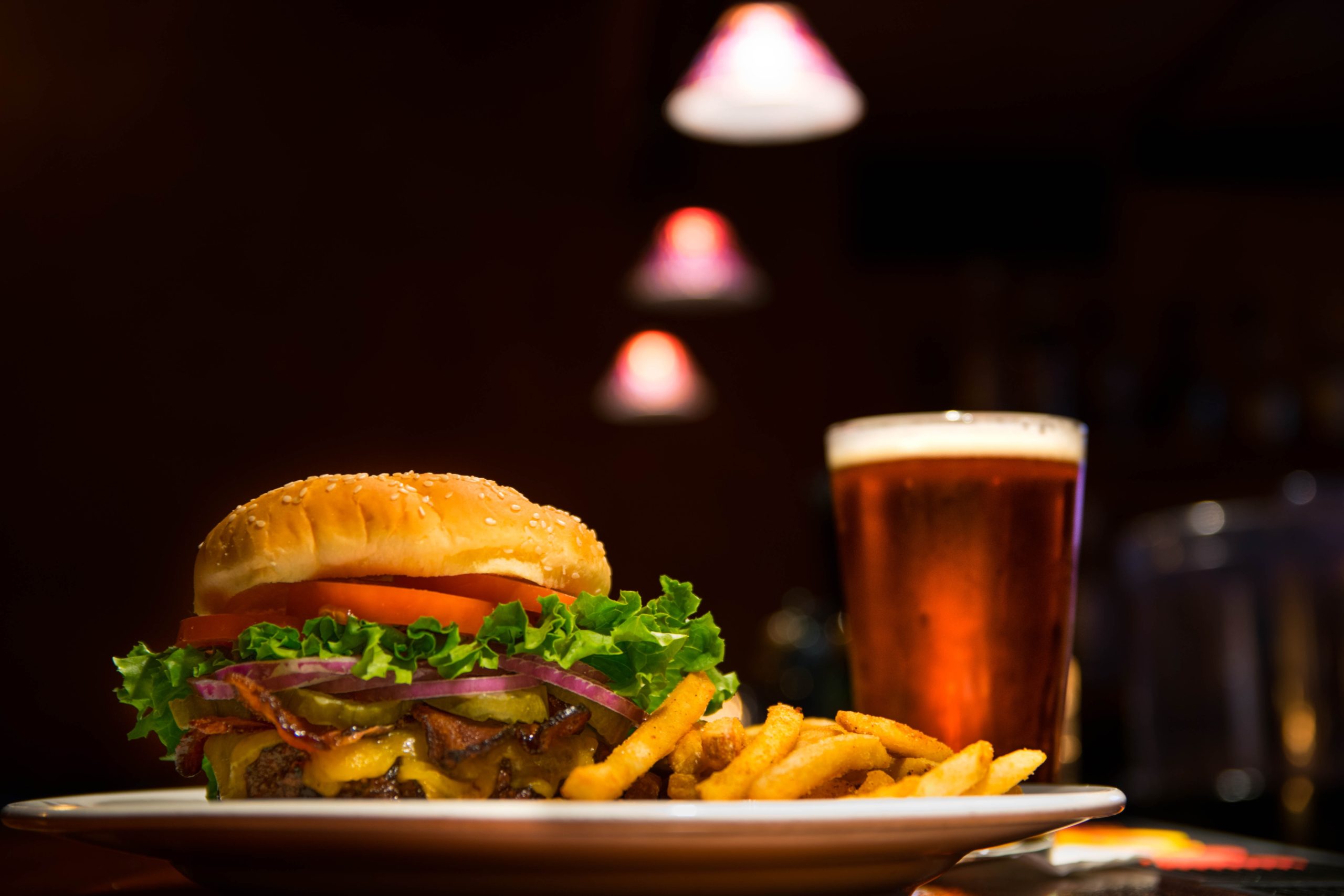Launching Your Fast-Casual Restaurant
Launching your fast-casual restaurant in the UK needs a mix of cooking passion and business smarts. This article guides you through creating a thriving place, discussing where it is, what’s on the menu, getting the correct permits, and hiring staff. We also examine how fast-casual differs from fast food and discuss the money and advertising needed to keep things going well. Come along as we uncover the plan for starting a restaurant where tasty food meets clever business moves in the lively world of eating out in the UK.
Develop a Comprehensive Business Plan:
Create a business plan outlining your concept, target market, financial projections, and operational strategies.
Select Cuisine and Design the Menu:
- Choose the type of cuisine you want to offer and design a menu that reflects your theme and caters to your target customers.
Get Your Licenses:
Ensure you acquire all required licenses and permits to operate a food establishment legally. Here are some of the licenses you would need:
- Planning and Construction
- Planning Permission
- Building Regulations Approval
- Food Business Registration
- Health and Safety at Work
- Applicable alcohol licenses
- Premises Licence
- Music Licence
- Food Hygiene Rating Scheme
- Waste Disposal
- Pest Control Regulations
- Insurances
- Pavement Licence
- Gaming Machines
- Employing Staff
Choose the Right Location:
- Choose a strategic location with ample foot traffic and easy accessibility. Consider the preferences of your target market and evaluate the competition in the vicinity.
Build Your Team and Acquire Equipment:
- Hire skilled staff for both the kitchen and front-of-house. Invest in quality equipment to ensure efficient operations.
Facilitate Easy Ordering and Delivery:
- Implement user-friendly ordering systems, whether in-person or online. Consider delivery options to reach a broader customer base.
Effective Marketing:
- Establish a robust marketing strategy to generate awareness for your fast-food restaurant. Employ a combination of online and offline channels to connect with your target audience.
Work on Good Packaging:
- Invest in appealing and functional packaging for your food items; it enhances the customer experience and contributes to the brand image.
By systematically addressing these steps, you can lay a solid foundation for your fast food restaurant in the UK, ensuring compliance with regulations and setting the stage for success in a competitive industry.

Opening A Fast Casual Restaurant In The UK
Let’s break down the initial budget of £350,000 for opening a fast-casual restaurant in the UK.
Property Charges (£50,000):
- Location is crucial. Allocate funds for a prime spot with high foot traffic.
- Consider lease payments and any upfront deposits.
Premise Costs (£30,000):
- Include costs for obtaining necessary licenses and permits.
- Factor in any renovation expenses required by the local health department.
Fit-Out Costs (£60,000):
- Allocate interior design, furniture, and decor funds to create an appealing ambience.
- Consider kitchen layout and equipment placement for efficient workflow.
Legal Charges (£10,000):
- Hire legal professionals to ensure compliance with local regulations.
- Budget for any trademark or intellectual property protection.
Staffing Costs (£40,000):
- Cover initial salaries, training, and uniforms for kitchen and front-of-house staff.
- Include recruitment expenses if using a hiring agency.
Utility Costs (£5,000):
- Budget for utility connections and initial payments.
- Consider energy-efficient appliances to reduce ongoing utility costs.
Interior and Exterior Costs (£20,000):
- Allocate funds for signage, lighting, and other aesthetic elements.
- Include landscaping or outdoor seating if applicable.
Equipment Costs (£80,000):
- Invest in high-quality kitchen equipment for efficient operations.
- Consider both front-of-house (e.g., POS systems) and back-of-house equipment.
Pre-opening Expenses (£10,000):
- Cover marketing and promotional activities leading up to the opening.
- Include any pre-launch events or tastings.
Contingency Funding (£25,000):
- Allocate a reserve for unforeseen expenses or potential cost overruns. This practice aids in risk mitigation and ensures financial stability throughout the initial phase.

Technology Costs (£10,000):
- Invest in a robust point-of-sale system and other necessary restaurant management software.
- Consider online ordering and reservation systems.
Food Costs (£20,000):
- Initial inventory for the opening weeks.
- Include costs for sourcing quality ingredients and establishing relationships with suppliers.
Total: £350,000
This example of a £350,000 budget would require meticulous record-keeping, considering seasonal variations in the industry, and monitoring expenses closely to stay within budget. This example financial plan sets the foundation for a successful and sustainable fast-casual restaurant in the UK.
Frequently Asked Questions and Answers
How profitable are fast-casual restaurants?
Fast casual restaurants can be profitable, as they offer a balance between quick service and higher-quality food, attracting customers willing to pay a bit more for a better dining experience. Profitability depends on various factors, including location, target market, and effective management.
What is the difference between a fast-casual restaurant and a fast-food restaurant?
Fast casual restaurants offer higher-quality food with a more upscale atmosphere than traditional fast-food establishments. They often provide healthier menu options, use fresher ingredients, and allow for a more customised dining experience. Fast casual dining is generally associated with a slightly higher price point.
What is the average per-person dinner check at a quick casual restaurant?
The average per-person dinner check at a quick casual restaurant can vary but typically in the mid-range. Customers might spend more than fast-food establishments due to the better quality of ingredients and dining experience.
Is owning a restaurant profitable in the UK?
The profitability of owning a restaurant in the UK varies. Success depends on location, concept, effective management, and target market understanding. Conducting thorough market research and financial planning before starting a restaurant is essential.
How much money is required to open a restaurant in the UK?
The amount of money required to open a restaurant in the UK varies widely based on location, size, concept, and equipment. On average, costs can range from tens of thousands to several hundred thousand pounds.
Do I need a license to open a restaurant in the UK?
You need various business licenses to open a UK restaurant, including food hygiene, alcohol, and entertainment licenses. It’s crucial to research and obtain the necessary permits to operate legally.
Can I sell food I make at home in the UK?
In the UK, selling home-made food is subject to specific regulations. Generally, you need to comply with food hygiene and safety standards. It’s advisable to check with local authorities and the Food Standards Agency for specific requirements.

Is the fast-food business profitable in the UK?
The fast-food business can be profitable in the UK due to its popularity. Still, success depends on factors such as location, competition, and the ability to meet customer preferences for quality and convenience.
What is the best food business to start in the UK?
The best food business to start in the UK depends on your interests, target market, and local demand. Depending on the market niche, options include fast casual dining, speciality cuisines, or catering services.
What are the pros and cons of fast-casual restaurants?
Pro: Enhanced food quality, laid-back ambience, and the potential for a broader customer demographic.
Cons: Slightly increased prices, intensified competition, and the need for a well-defined brand to set oneself apart.
Why are fast casual restaurants successful?
Fast casual restaurants succeed by offering a balance between speed and quality, catering to customers who seek better food options and a more enjoyable dining experience than traditional fast food.
Why do people like fast-casual restaurants?
People appreciate fast casual restaurants for their quick service and higher-quality food. The customisable menu options, fresher ingredients, and pleasant atmosphere contribute to their popularity.
Which business is most profitable in the UK?
The most profitable business in the UK varies, but sectors such as technology, finance, and healthcare tend to be lucrative. Success also depends on market trends, innovation, and effective business strategies.
Can I open a restaurant in my house in the UK?
Operating a restaurant from your house in the UK is generally not allowed due to health and safety regulations. Establishments must adhere to specific standards, and home kitchens may not meet these requirements.

Related articles:
Restaurant Management Structure
Successful Restaurant Concepts
How To Write A Successful Restaurant Business Plan Step-By-Step Guide
Conclusion
Establishing a fast-casual restaurant in the UK requires careful planning and consideration of various factors. Each step is pivotal in the venture’s success, from selecting a prime location with optimal foot traffic to creating a menu tailored to the target market’s preferences.
Acquiring the necessary licenses, investing in quality staff and equipment, and implementing efficient ordering and delivery systems are integral components. Moreover, a strong marketing strategy, including online and offline channels, enhances visibility and fosters a connection with the desired customer base.
Allocating a contingency fund for unforeseen expenses ensures financial stability during the initial phase. By addressing these aspects comprehensively, aspiring restaurateurs can set the stage for a thriving and distinctive fast-casual dining experience in the dynamic landscape of the UK.


